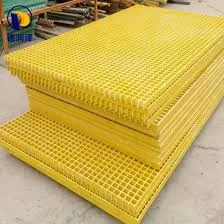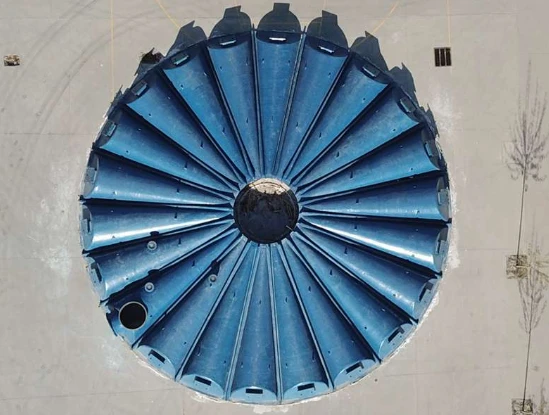
-
 Afrikaans
Afrikaans -
 Albanian
Albanian -
 Amharic
Amharic -
 Arabic
Arabic -
 Armenian
Armenian -
 Azerbaijani
Azerbaijani -
 Basque
Basque -
 Belarusian
Belarusian -
 Bengali
Bengali -
 Bosnian
Bosnian -
 Bulgarian
Bulgarian -
 Catalan
Catalan -
 Cebuano
Cebuano -
 China
China -
 China (Taiwan)
China (Taiwan) -
 Corsican
Corsican -
 Croatian
Croatian -
 Czech
Czech -
 Danish
Danish -
 Dutch
Dutch -
 English
English -
 Esperanto
Esperanto -
 Estonian
Estonian -
 Finnish
Finnish -
 French
French -
 Frisian
Frisian -
 Galician
Galician -
 Georgian
Georgian -
 German
German -
 Greek
Greek -
 Gujarati
Gujarati -
 Haitian Creole
Haitian Creole -
 hausa
hausa -
 hawaiian
hawaiian -
 Hebrew
Hebrew -
 Hindi
Hindi -
 Miao
Miao -
 Hungarian
Hungarian -
 Icelandic
Icelandic -
 igbo
igbo -
 Indonesian
Indonesian -
 irish
irish -
 Italian
Italian -
 Japanese
Japanese -
 Javanese
Javanese -
 Kannada
Kannada -
 kazakh
kazakh -
 Khmer
Khmer -
 Rwandese
Rwandese -
 Korean
Korean -
 Kurdish
Kurdish -
 Kyrgyz
Kyrgyz -
 Lao
Lao -
 Latin
Latin -
 Latvian
Latvian -
 Lithuanian
Lithuanian -
 Luxembourgish
Luxembourgish -
 Macedonian
Macedonian -
 Malgashi
Malgashi -
 Malay
Malay -
 Malayalam
Malayalam -
 Maltese
Maltese -
 Maori
Maori -
 Marathi
Marathi -
 Mongolian
Mongolian -
 Myanmar
Myanmar -
 Nepali
Nepali -
 Norwegian
Norwegian -
 Norwegian
Norwegian -
 Occitan
Occitan -
 Pashto
Pashto -
 Persian
Persian -
 Polish
Polish -
 Portuguese
Portuguese -
 Punjabi
Punjabi -
 Romanian
Romanian -
 Russian
Russian -
 Samoan
Samoan -
 Scottish Gaelic
Scottish Gaelic -
 Serbian
Serbian -
 Sesotho
Sesotho -
 Shona
Shona -
 Sindhi
Sindhi -
 Sinhala
Sinhala -
 Slovak
Slovak -
 Slovenian
Slovenian -
 Somali
Somali -
 Spanish
Spanish -
 Sundanese
Sundanese -
 Swahili
Swahili -
 Swedish
Swedish -
 Tagalog
Tagalog -
 Tajik
Tajik -
 Tamil
Tamil -
 Tatar
Tatar -
 Telugu
Telugu -
 Thai
Thai -
 Turkish
Turkish -
 Turkmen
Turkmen -
 Ukrainian
Ukrainian -
 Urdu
Urdu -
 Uighur
Uighur -
 Uzbek
Uzbek -
 Vietnamese
Vietnamese -
 Welsh
Welsh -
 Bantu
Bantu -
 Yiddish
Yiddish -
 Yoruba
Yoruba -
 Zulu
Zulu
Jan . 29, 2025 01:49
Back to list
frp rectangular tank
Fiberglass Reinforced Plastic (FRP) rectangular tanks have become pivotal in industries ranging from chemical processing to aquaculture, owing to their robustness, adaptability, and cost-efficiency. They are seen as an excellent alternative to traditional materials due to their lightweight nature, corrosion resistance, and long service life.
Aquaculture has also benefited from the integration of FRP tanks. Their smooth surfaces make them ideal for rearing sensitive fish species, preventing injury and disease proliferation. Additionally, FRP tanks are less likely to leach harmful compounds into the water, ensuring a healthier breeding environment for aquatic life. The tanks' thermal insulating properties help maintain a stable water temperature, conducive to optimal growth and reproduction of fish. For companies focused on sustainability, the ecological footprint of FRP rectangular tanks is highly appealing. Their longevity reduces the frequency of replacements, thus conserving resources. Furthermore, when these tanks reach the end of their service life, their components can often be recycled or repurposed, aligning with the global shift toward more sustainable industrial practices. The versatility of FRP rectangular tanks also extends to the food and beverage industry. With strict hygiene requirements, facilities need storage solutions that can be thoroughly sanitized without degrading over time. FRP tanks meet these needs, being non-porous and resistant to frequent cleaning chemicals and processes. Trustworthiness in the market for FRP tanks is elevated when manufacturers adhere to international standards such as ASTM and ISO certifications. These standards ensure that tanks meet stringent safety and performance criteria, rendering them reliable. Consumers are advised to seek suppliers who transparently offer these assurances, backed by comprehensive warranties, as such actions amplify consumer confidence in the product. Through years of innovation and practical implementation, FRP rectangular tanks have established themselves as a staple in industrial storage solutions. Their technical and environmental advantages over traditional materials underscore their significance in modern engineering. As industries continue to evolve, the adaptability and resilience of FRP tanks will undoubtedly secure their place in helping businesses meet both their operational and sustainability goals.


Aquaculture has also benefited from the integration of FRP tanks. Their smooth surfaces make them ideal for rearing sensitive fish species, preventing injury and disease proliferation. Additionally, FRP tanks are less likely to leach harmful compounds into the water, ensuring a healthier breeding environment for aquatic life. The tanks' thermal insulating properties help maintain a stable water temperature, conducive to optimal growth and reproduction of fish. For companies focused on sustainability, the ecological footprint of FRP rectangular tanks is highly appealing. Their longevity reduces the frequency of replacements, thus conserving resources. Furthermore, when these tanks reach the end of their service life, their components can often be recycled or repurposed, aligning with the global shift toward more sustainable industrial practices. The versatility of FRP rectangular tanks also extends to the food and beverage industry. With strict hygiene requirements, facilities need storage solutions that can be thoroughly sanitized without degrading over time. FRP tanks meet these needs, being non-porous and resistant to frequent cleaning chemicals and processes. Trustworthiness in the market for FRP tanks is elevated when manufacturers adhere to international standards such as ASTM and ISO certifications. These standards ensure that tanks meet stringent safety and performance criteria, rendering them reliable. Consumers are advised to seek suppliers who transparently offer these assurances, backed by comprehensive warranties, as such actions amplify consumer confidence in the product. Through years of innovation and practical implementation, FRP rectangular tanks have established themselves as a staple in industrial storage solutions. Their technical and environmental advantages over traditional materials underscore their significance in modern engineering. As industries continue to evolve, the adaptability and resilience of FRP tanks will undoubtedly secure their place in helping businesses meet both their operational and sustainability goals.
Next:
Related Products
Latest news
-
Exploring the Benefits of Top Hammer Drifter Rods for Enhanced Drilling PerformanceNewsJun.10,2025
-
High-Precision Fiberglass Winding Machine for GRP/FRP Pipe Production – Reliable & Efficient SolutionsNewsJun.10,2025
-
FRP Pipes & Fittings for Shipbuilding - Corrosion-Resistant & LightweightNewsJun.09,2025
-
Premium FRP Flooring Solutions Durable & Slip-ResistantNewsJun.09,2025
-
Premium Fiberglass Rectangular Tanks Durable & Lightweight SolutionNewsJun.09,2025
-
Tapered Drill String Design Guide Durable Performance & UsesNewsJun.09,2025









